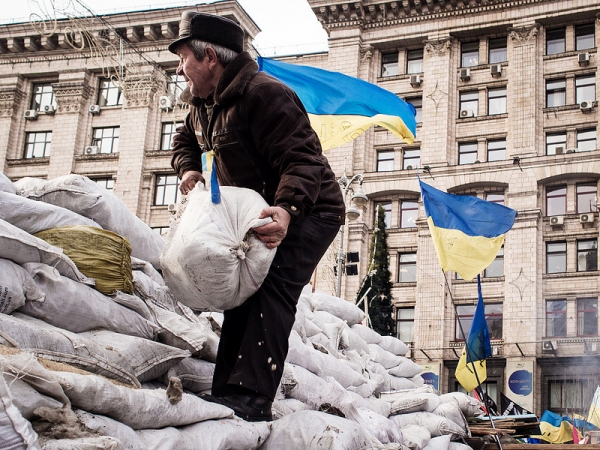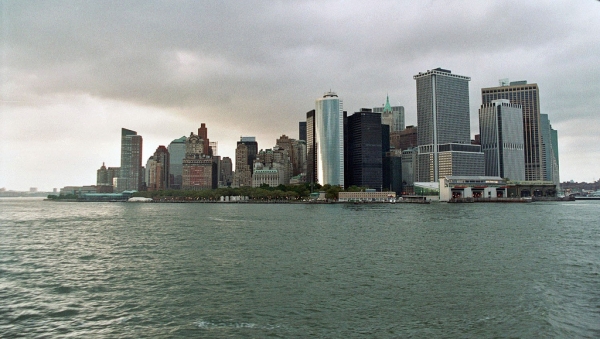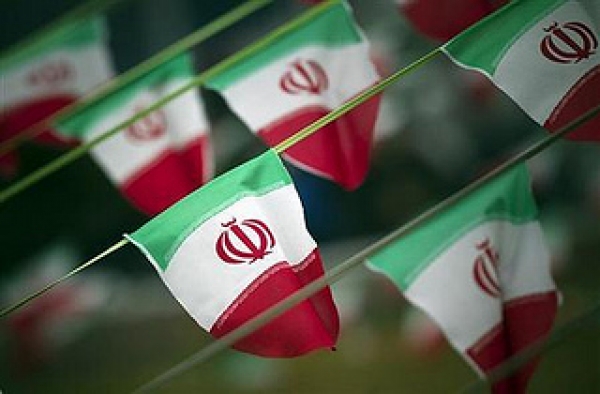Welcome to Around the World, and a Happy New Year to all our readers! Be sure to follow us on Facebook and Twitter for a countdown of our most popular articles of 2013!
 | Ukraine’s Revolution of Dignity Ukraine's upheaval started as protest against a political decision by President Viktor Yanukovych. Now it has turned into something much more. Read more about it here. |
 | Digital Politicking Comes to Europe The secret to success in a political campaign's social media strategy is telling a cohesive story. European political parties need to re-imagine their strategies in order to connect more with constituents. Read more about it here. |
 | The State Department is engaging the world’s growing cities like never before. A top U.S. diplomat explains why. Read more about it here. |
 | Drones in Our World, Part V: Domestic Possibilities Unmanned aerial systems offer the same capabilities as manned solutions, but do so with lighter footprints in both resource expenditure and visibility and with fewer risks to human lives and operator error. Read more about it here. |
 | After Geneva: A Look at What’s Ahead for Iran The international community must give the Iranian regime the opportunity to demonstrate the authenticity of the “change narrative” that dominated Mr. Rouhani’s media tour in the U.S., but that cannot be the end of the negotiations process. Read more about it here. |
Around the Web
Back to back explosions in Volograd, Russia—following a suicide attack in October by a Dagestani woman—are making Russian security forces nervous ahead of the Sochi Olympics. Volograd itself is of little strategic importance, but the message sent by the terror attacks is that security forces will need to secure every major city during the Olympics.
After a two-year probe by the Istanbul Prosecutor's Office into allegations of corruption including money laundering, gold smuggling, and bribery that resulted in the arrest of several high-ranking public leaders and businessmen, Turkey is once more facing upheavals reminiscent of the Gezi Park protests earlier this year. Prime Minister Recep Tayyip Erdoğan and his failed leadership have seemed to be at the center of the scandal, but he is so far refusing to even consider the calls that he step down from office. Meanwhile, the corruption probe had caused Turkey's economy, formerly considered one of the world's most stable following the economic crisis, to plummet. Further details or journalistic investigation in the corruption allegations may be difficult to come by, however, as Turkey is infamous for imprisoning the most journalists of any country in the world, followed by Iran and China.
This Week in History
1979: Soviet military forces seize control of Afghanistan. In a case study in blowback, the resulting covert war by the U.S. to push back Soviet forces resulted in money and weapons being funneled through corrupt institutions in Pakistan and Afghanistan into the hands of religious extremist forces; the Taliban still wrestles for control of the region today.
2004: The most powerful earthquake the world had seen in 40 years hit underwater off the Indonesian island of Sumatra, sending walls of water barreling into half a dozen countries across South and Southeast Asia. More than 200,000 people were killed.


a global affairs media network
Around the World!

December 31, 2013
Welcome to Around the World, and a Happy New Year to all our readers! Be sure to follow us on Facebook and Twitter for a countdown of our most popular articles of 2013!
 | Ukraine’s Revolution of Dignity Ukraine's upheaval started as protest against a political decision by President Viktor Yanukovych. Now it has turned into something much more. Read more about it here. |
 | Digital Politicking Comes to Europe The secret to success in a political campaign's social media strategy is telling a cohesive story. European political parties need to re-imagine their strategies in order to connect more with constituents. Read more about it here. |
 | The State Department is engaging the world’s growing cities like never before. A top U.S. diplomat explains why. Read more about it here. |
 | Drones in Our World, Part V: Domestic Possibilities Unmanned aerial systems offer the same capabilities as manned solutions, but do so with lighter footprints in both resource expenditure and visibility and with fewer risks to human lives and operator error. Read more about it here. |
 | After Geneva: A Look at What’s Ahead for Iran The international community must give the Iranian regime the opportunity to demonstrate the authenticity of the “change narrative” that dominated Mr. Rouhani’s media tour in the U.S., but that cannot be the end of the negotiations process. Read more about it here. |
Around the Web
Back to back explosions in Volograd, Russia—following a suicide attack in October by a Dagestani woman—are making Russian security forces nervous ahead of the Sochi Olympics. Volograd itself is of little strategic importance, but the message sent by the terror attacks is that security forces will need to secure every major city during the Olympics.
After a two-year probe by the Istanbul Prosecutor's Office into allegations of corruption including money laundering, gold smuggling, and bribery that resulted in the arrest of several high-ranking public leaders and businessmen, Turkey is once more facing upheavals reminiscent of the Gezi Park protests earlier this year. Prime Minister Recep Tayyip Erdoğan and his failed leadership have seemed to be at the center of the scandal, but he is so far refusing to even consider the calls that he step down from office. Meanwhile, the corruption probe had caused Turkey's economy, formerly considered one of the world's most stable following the economic crisis, to plummet. Further details or journalistic investigation in the corruption allegations may be difficult to come by, however, as Turkey is infamous for imprisoning the most journalists of any country in the world, followed by Iran and China.
This Week in History
1979: Soviet military forces seize control of Afghanistan. In a case study in blowback, the resulting covert war by the U.S. to push back Soviet forces resulted in money and weapons being funneled through corrupt institutions in Pakistan and Afghanistan into the hands of religious extremist forces; the Taliban still wrestles for control of the region today.
2004: The most powerful earthquake the world had seen in 40 years hit underwater off the Indonesian island of Sumatra, sending walls of water barreling into half a dozen countries across South and Southeast Asia. More than 200,000 people were killed.


